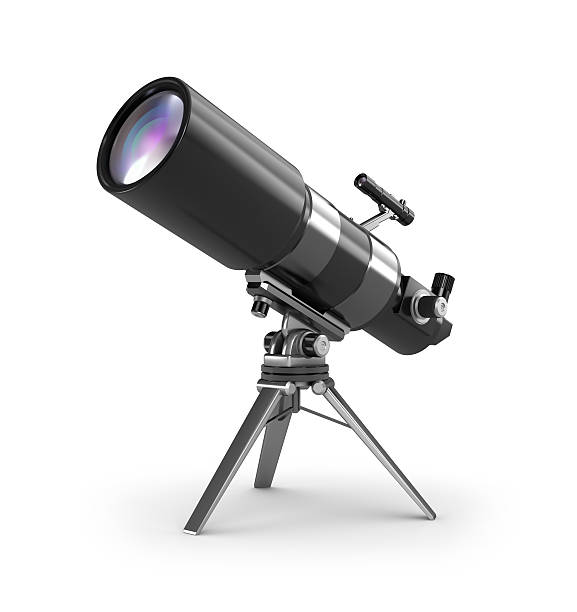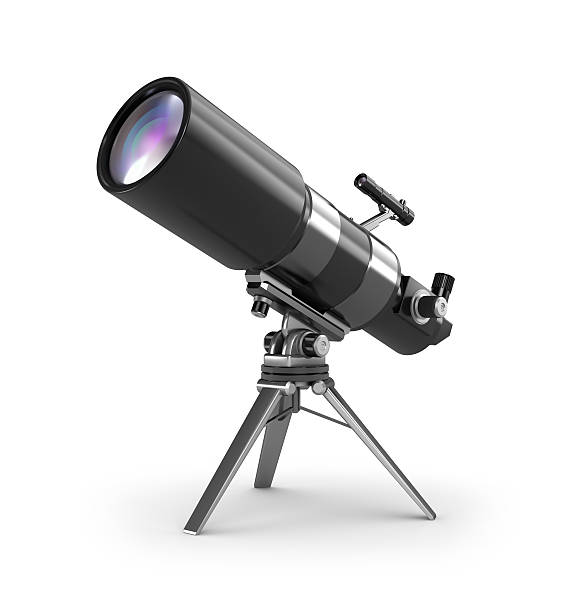5 Best telescopes for beginners
Astronomy is a captivating hobby that allows us to explore the wonders of the universe from the comfort of our own backyard. As a beginner, choosing the right telescope is a crucial first step in your astronomical journey. With a multitude of options available, it can be overwhelming to make an informed decision. In this comprehensive guide, we will delve into the world of telescopes and introduce you to the five best telescopes for beginners, ensuring that your celestial exploration is both enjoyable and educational.
Understanding Telescopes
Before we dive into our top telescope recommendations, let’s begin by understanding the basic components of a telescope. Telescopes come in various types, each with its own advantages and disadvantages:
Refractor Telescopes
A refractor telescope is an optical device in best telescopes for beginners to used to observe distant objects, particularly celestial bodies. Its fundamental mechanism relies on the refraction of light through lenses. The primary component of a refractor telescope is the objective lens positioned at the front end. This lens gathers and focuses incoming light, forming an initial image.
At the rear end, the eyepiece further magnifies this image for observation. These optical elements are housed in a tube assembly, ensuring their proper alignment. The best telescopes for beginners is typically mounted on a stable tripod or mount, allowing precise aiming and tracking of celestial objects.
Compound Telescopes
Compound telescopes, such as the Schmidt-Cassegrain and Maksutov-Cassegrain designs, combine elements of both refractor and reflector telescopes. They are known for their versatility and compact design, making them a popular choice among amateur astronomers.
Now that we have a basic understanding of best telescopes for beginners , let’s explore the top five telescopes for beginners.
5 Best telescopes for beginners
When venturing into the fascinating world of astronomy, selecting the right telescope can make all the difference in the journey of a Best telescopes for beginners astronomer. With a myriad of options available, finding the perfect Best telescope under 10k can be a daunting task. In this guide, we’ll explore the top five telescopes tailored for beginners, considering factors such as ease of use, affordability, and performance. Whether you’re intrigued by the planets in our solar system, distant galaxies, or celestial phenomena, these telescopes will provide an excellent starting point for your astronomical pursuits. Let’s embark on a journey to discover the best telescopes that will help you explore the cosmos and unlock the mysteries of the universe.
These are the best telescopes for beginners –
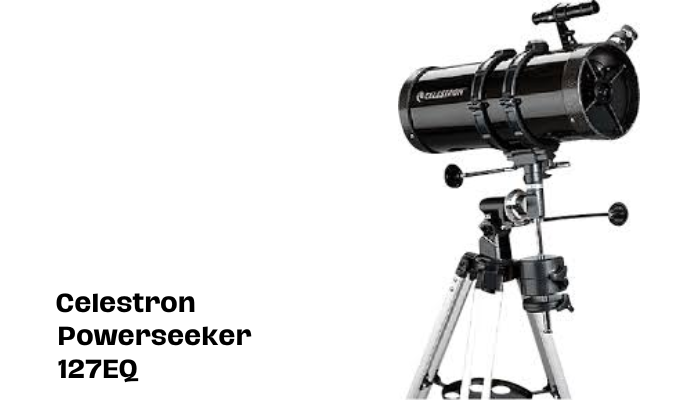
1. Celestron Power Seeker 127EQ
The Celestron PowerSeeker 127EQ is an exceptional choice for novice astronomers. This telescope offers a 127mm (5-inch) aperture and a 1000mm focal length, providing clear and detailed views of the moon, planets, and deep-sky objects. Its equatorial mount facilitates precise tracking of celestial objects, and the included accessories, such as the 20mm and 4mm eyepieces, offer various magnification options. Affordable and easy to set up, the PowerSeeker 127EQ is a perfect starting point for budding astronomers.
2. Orion SkyQuest XT8
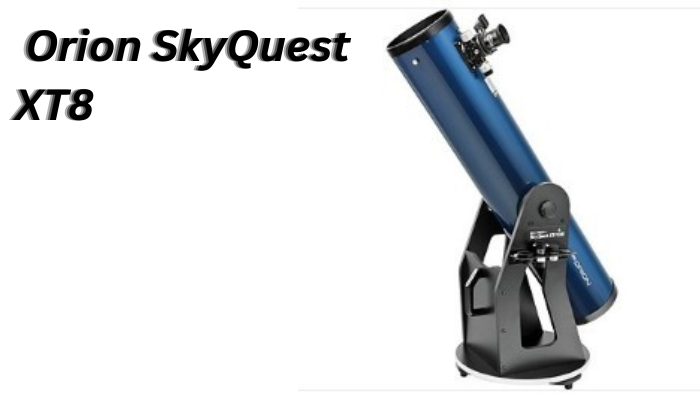
If you’re looking to explore the universe with more power, the Orion SkyQuest XT8 is an excellent choice. With an 8-inch aperture, this Dobsonian telescope gathers an impressive amount of light, allowing you to observe distant galaxies and nebulae in detail. Its intuitive design makes it user-friendly, and the included 25mm and 10mm eyepieces provide versatile viewing experiences. While it is larger and slightly pricier than some beginner scopes, the SkyQuest XT8 is a reliable investment for those serious about astronomy.
3. Meade Instruments Infinity 102mm AZ
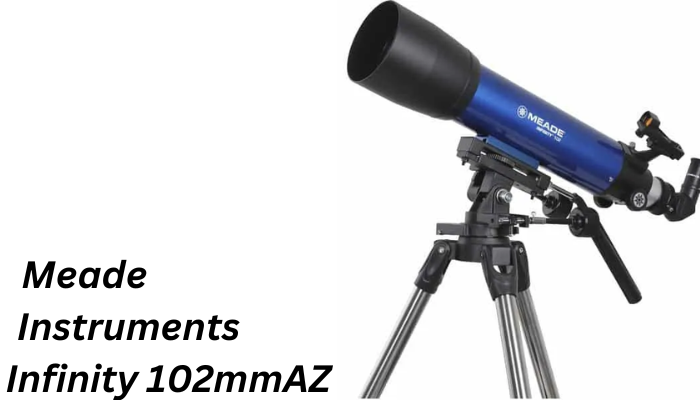
The Meade Instruments Infinity 102mm AZ is a compact and user-friendly refractor telescope, making it an ideal choice for beginners. Featuring a 102mm aperture and a 600mm focal length, it delivers clear and bright images of celestial objects. Its altazimuth mount is easy to use, making it suitable for families and beginners of all ages. The included accessory kit provides a range of eyepieces for diverse viewing options, and the simple assembly ensures you can start stargazing in no time.
4. Sky-Watcher Heritage 130P FlexTube

For those seeking portability and affordability, the Sky-Watcher Heritage 130P FlexTube is an excellent option. This tabletop Dobsonian telescope features a 130mm aperture and a collapsible design, making it easy to transport and store. Despite its small size, it offers remarkable views of the moon, planets, and deep-sky objects. The telescope’s simplicity and included 25mm and 10mm eyepieces make it an excellent choice for beginners with limited space.
5. Celestron NexStar 4SE

The Celestron NexStar 4SE is a compact, computerized telescope that provides impressive performance despite its size. With a 102mm aperture, it is suitable for both celestial and terrestrial viewing. The integrated computerized mount comes with a database of over 40,000 objects, allowing you to effortlessly locate and track celestial targets. This telescope is an excellent choice for beginners who want a more advanced experience with guided tours of the night sky.
Chapter 3: Considerations When Buying a Telescope
Choosing the right telescope involves more than just selecting a model. Here are some essential considerations to keep in mind:
Budget
Consider your best telescopes for beginners in budget carefully. Telescopes come in various price ranges, so determine how much you’re willing to invest in your new hobby. Remember to account for additional accessories like eyepieces, filters, and a sturdy mount.
Space and Portability
If you have limited space or plan to take your telescope to different locations, choose a portable and easy-to-assemble model. Refractor or catadioptric telescopes with altazimuth mounts are generally more compact and lightweight than reflector telescopes with computerized mounts. Consider the Celestron Inspire 100AZ, Sky-Watcher Heritage 130P, Orion StarBlast 4.5 EQ, Celestron NexStar 4SE, or Meade Mini 114AZ. Follow the instructions carefully when assembling your telescope.
Aperture
Aperture size is the most important factor in determining a best telescopes for beginners light-gathering ability, and thus the faintest objects you can see. However, larger apertures also mean bigger and bulkier telescopes. If you have limited space or plan to take your telescope to different locations, choose a model with a smaller aperture, but consider what you want to observe. For deep-sky objects, you will need a larger aperture.
Mount Type
Consider the type of mount you prefer. Equatorial mounts are ideal for precise tracking of celestial objects, while altazimuth mounts are more straightforward to use, making them suitable for beginners.
Accessories
Check if the telescope comes with essential accessories like eyepieces, finderscopes, and a sturdy tripod or mount. these was the best telescopes for beginners Additionally, research if compatible accessories are readily available.
Chapter 4: Tips for Successful Stargazing
Best telescope under 10k for successful stargazing, consider finding a dark, light pollution-free location away from city lights to maximize your visibility of celestial objects. Use a good quality telescope or binoculars, and research the best times and dates for observing specific astronomical events like meteor showers or planetary conjunctions. Additionally, dress warmly, bring star charts or stargazing apps, and practice patience while letting your eyes adjust to the darkness for the best stargazing experience.
Dark Skies
Try to observe from locations with minimal light pollution. Dark skies provide clearer views of celestial objects. Dark skies hold a certain allure, offering a canvas for the stars and celestial wonders to shine brightly. These pristine nightscapes, unspoiled by excessive artificial light, provide a remarkable opportunity for stargazers and astronomers to connect with the cosmos in its purest form.
Observing under dark skies unveils the beauty of galaxies, nebulae, and planets, revealing the secrets of the universe with unparalleled clarity. Preserving and seeking out dark sky locations is not only a privilege but also an essential step in fostering a deeper appreciation for the celestial wonders that grace our night.
Patience
Best telescope seller in India in Astronomy requires patience. Objects may move slowly across the sky, so take your time to observe and enjoy the view. Patience is an essential companion for anyone delving into the world of astronomy. Gazing at the night sky, unraveling its mysteries, and capturing its beauty through telescopes or cameras often requires long hours of waiting for the perfect moment.
It’s the patience to endure through unpredictable weather, star alignments, and cosmic events that rewards astronomers with awe-inspiring sights and profound discoveries. In the realm of astronomy, patience is not just a virtue but a key to unlocking the universe’s secrets.
Learn the Night Sky
To get the most out of your telescope, familiarize yourself with the constellations and major celestial objects using smartphone apps or star charts. These tools can show you what is visible in your area of the sky and provide information about the objects, such as their brightness, size, and distance.
Maintenance
Regularly clean your telescope’s optics and check for collimation (alignment) if you own a reflector telescope. Proper maintenance of your telescope is essential to ensure its longevity and optimal performance. Regularly clean the lenses or mirrors with a soft brush or compressed air to remove dust and debris, avoiding any abrasive materials that could scratch the surfaces.
Additionally, store your Best telescope under 10k in a protective case when not in use to shield it from dust and damage, and consider collimating the optics as needed to maintain precise focus.
Join an Astronomy Club
Consider Best telescope seller in india joining a local astronomy club or online forums to connect with experienced astronomers and gain valuable insights. Joining an astronomy club can be an enriching experience for those who are passionate about exploring the mysteries of the universe. Such a club offers a unique opportunity to connect with like-minded individuals who share your fascination with the cosmos. Through regular meetings, stargazing sessions, and informative discussions, you can expand your knowledge of celestial bodies, constellations, and astrophysical phenomena.
By actively participating in an astronomy club, you’ll not only deepen your understanding of the cosmos but also forge lasting friendships with fellow enthusiasts, making the journey through the night sky an unforgettable and educational adventure.
Conclusion
Selecting the best telescopes for beginners as a beginner is a crucial step in embarking on a rewarding and enjoyable journey into astronomy. The best telescopes for beginners mentioned in this guide cater to various preferences, budgets, and skill levels, ensuring that there’s an ideal choice for everyone. Whether you opt for the Celestron PowerSeeker 127EQ, the Orion SkyQuest XT8, the Meade Instruments Infinity 102mm AZ, the Sky-Watcher Heritage 130P FlexTube, or the Celestron NexStar 4SE, each of these best telescopes for beginners has unique advantages that can help you explore the cosmos with curiosity and wonder. So, gear up, set up your telescope, and embark on a thrilling stargazing adventure. The universe is waiting for you to discover its secrets for Best telescope seller in india.


